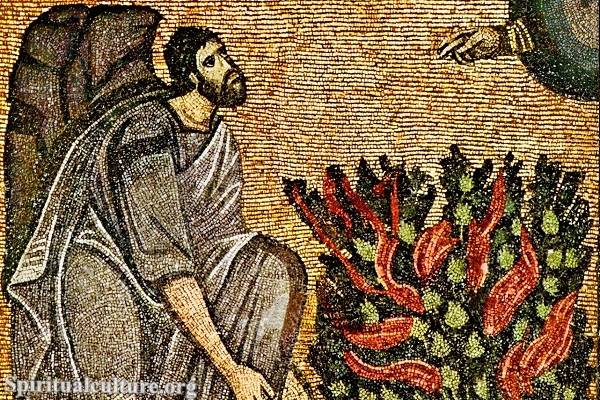For millennia, the Jewish people have followed sacred dietary guidelines known as kashrut — a word rooted in the Hebrew kasher, meaning “fit” or “proper.” These laws, often summarized under the term kosher, shape not just what is eaten, but how food is prepared, consumed, and spiritually regarded.
Why do these food laws matter? And what wisdom lies behind them?
As Spiritual Culture, we invite you into this exploration of kashrut — not merely as a list of rules, but as a path toward holiness, mindfulness, and deep cultural identity. This article explores the biblical foundations, spiritual meanings, and modern-day practices of kosher laws — and why they still resonate profoundly today.
Understanding the Foundation of Kashrut
The Meaning of “Kosher”
The term kosher doesn’t mean “blessed” or “healthy.” Rather, it means that something complies with Jewish dietary law as prescribed by the Torah. Food that is not kosher is referred to as treif (literally “torn”).
Kashrut is not a matter of personal taste or health preference — it is a spiritual discipline. It is about aligning daily living with sacred law and remembering the divine in the act of eating.
“You shall be holy, for I the LORD your God am holy.”
— Leviticus 19:2
Holiness in Judaism is not abstract. It touches everything — even the food on one’s plate.
Biblical Origins of Kosher Laws
Kashrut is primarily found in:
- Leviticus 11
- Deuteronomy 14
These chapters list which animals may or may not be eaten, and lay down other laws regarding slaughter, separation of meat and dairy, and more.
Some key principles:
- Only certain land animals (with split hooves and that chew cud) are kosher (e.g., cows, sheep, goats).
- Only fish with fins and scales are kosher (no shellfish).
- Birds of prey are forbidden, but domesticated birds like chicken, duck, and turkey are allowed.
- Insects, reptiles, and rodents are all non-kosher.
While the Torah gives the laws, it does not always explain the “why” — inviting centuries of rabbinic reflection and spiritual interpretation.
Core Laws of Kashrut
Permitted and Forbidden Animals
Land Animals
To be kosher:
- The animal must chew its cud (ruminant) and have a split hoof.
- Cows, goats, deer, and sheep qualify.
- Pigs, though they have split hooves, do not chew cud — hence, not kosher.
Sea Creatures
Only fish with fins and scales are kosher:
- Salmon, tuna, cod – allowed
- Shrimp, lobster, crab, catfish – not kosher
Birds
- Torah lists forbidden birds (mostly predators).
- Chicken, duck, and turkey — traditional and kosher
- Eagle, owl, hawk — forbidden
Insects
Almost all insects are forbidden, except for a few locust species — but due to uncertainty, most communities do not eat insects at all.
Ritual Slaughter (Shechita)
Even if an animal is kosher, it must be slaughtered in a specific way called shechita, by a trained individual (shochet). This:
- Minimizes pain to the animal
- Ensures the blood is drained properly
- Reflects reverence for life
“Only you shall not eat the blood; you shall pour it on the earth like water.”
— Deuteronomy 12:16
Separation of Meat and Dairy
One of the most well-known kosher laws is the complete separation of meat and dairy:
- No mixing in meals
- Separate cookware, dishes, and utensils
- Observant Jews wait several hours between eating meat and dairy
This law is based on verses like:
“You shall not boil a kid in its mother’s milk.”
— Exodus 23:19, 34:26; Deuteronomy 14:21
The separation goes beyond food — it’s a symbol of compassion and respect for life.
Kosher Certification
In the modern world, kosher products are marked with symbols such as:
- OU (Orthodox Union)
- Kof-K
- OK
These symbols confirm that: - Ingredients are kosher
- Processing meets kosher standards
- Supervision was done by a mashgiach (kosher inspector)
Spiritual Meanings of Kashrut
Food as a Path to Holiness
In Judaism, eating is never just a physical act — it is spiritual. By restricting what is eaten, kashrut sanctifies the ordinary. It turns the mundane into the sacred.
“In all your ways acknowledge Him, and He shall direct your paths.”
— Proverbs 3:6
Eating becomes a way to remember God — to slow down, give thanks, and stay mindful.
Discipline, Identity, and Remembrance
Kashrut:
- Trains the soul in self-restraint
- Reminds the Jewish people of their covenant with God
- Reinforces community and cultural continuity
Keeping kosher is not just personal. It builds shared identity — across families, across generations, across continents.
“A people who dwell apart, and will not be reckoned among the nations.”
— Numbers 23:9
Kashrut sets the Jewish people apart — not in pride, but in purpose.
Ethical and Environmental Consciousness
While kashrut predates modern environmentalism, it carries implicit lessons:
- Emphasis on humane slaughter
- Prohibitions against waste and cruelty
- Elevating food beyond exploitation
Some see keeping kosher today as part of eco-kashrut — a growing movement to merge traditional laws with modern ethics around sustainability and food justice.
Kashrut in Daily Jewish Life
In the Home
A kosher kitchen is deeply organized:
- Separate meat and dairy counters, sinks, utensils
- Only kosher products bought
- Many Jews “kasher” their kitchen before Passover or other holy days
In the Community
Synagogues, Jewish schools, and events often serve only kosher food to:
- Include all observant participants
- Respect community norms
- Reinforce shared identity
In Israel, kosher certification is widespread — even secular Israelis are familiar with basic kosher distinctions.
In Travel and Global Life
Keeping kosher while traveling or living in mixed communities requires:
- Advance planning
- Seeking out kosher restaurants or markets
- Relying on certified products
Many observant Jews carry their own cookware or eat vegetarian when unsure.
Modern Questions and Challenges
Is Kashrut Still Relevant?
Some Jews — especially secular or Reform Jews — do not keep kosher. Others adopt partial observance, like avoiding pork or shellfish.
But for many, kashrut is timeless:
- A spiritual rhythm
- A cultural anchor
- A quiet act of faith
What About Health?
Kashrut is not a health code, though some kosher laws may have health benefits. For example:
- Avoiding blood
- Discouraging overeating or unconscious consumption
Still, kashrut is primarily about sacred discipline, not nutrition.
Vegetarianism and Kashrut
A vegetarian or vegan diet can easily be kosher — as long as all products are certified or composed of inherently kosher ingredients. Some modern Jews see vegetarianism as aligned with Jewish values of compassion and nonviolence.
Reflect and Reimagine
Kashrut is more than an ancient rulebook. It is a living language — through which the Jewish people speak to God with every bite they take.
In a world of fast food and convenience, kashrut invites sacred attention. It teaches that what we consume shapes who we become. It connects body and soul, appetite and holiness, identity and ethics.
Whether you are Jewish or simply curious, the laws of kosher eating whisper a deep truth:
What we eat matters.
How we eat matters even more.
Spiritual Culture invites you to consider:
What if eating could become a spiritual act — not just of nourishment, but of reverence?
Let your next meal remind you of the sacred.



